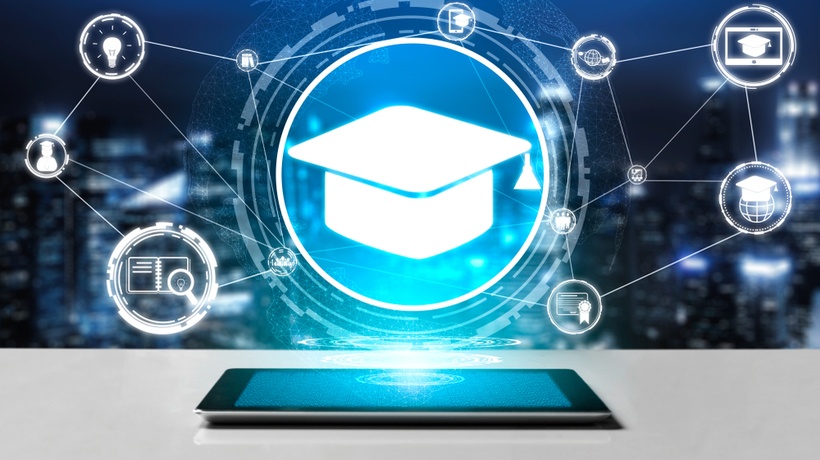
In the ever-evolving landscape of education, technology has emerged as a transformative force, offering boundless opportunities to create personalized learning environments tailored to the diverse needs and learning styles of students. By harnessing the power of technology, educators can transcend traditional one-size-fits-all approaches and unlock the potential for individualized learning experiences that inspire, engage, and empower learners. Through adaptive learning platforms, virtual classrooms, and interactive multimedia resources, students can embark on educational journeys uniquely tailored to their strengths, weaknesses, and interests, fostering deeper comprehension, retention, and mastery of academic concepts.
Moreover, technology enables educators to gather real-time data and insights into students' progress, allowing for timely interventions and personalized support. Whether through AI-driven analytics or immersive simulations, technology facilitates personalized feedback and scaffolding, guiding students on their educational pathways with precision and efficacy. As we continue to navigate the digital frontier of education, the fusion of technology and pedagogy holds immense promise in cultivating a dynamic, inclusive, and student-centered learning ecosystem where every learner can thrive and reach their full potential.
Technology and Personalized Learning
Technology, particularly artificial intelligence (AI), has emerged as a powerful ally in the quest for personalized learning experiences tailored to individual students' needs. AI algorithms can analyze vast amounts of data generated by students' interactions with digital learning platforms, identifying patterns and insights that inform personalized recommendations and interventions.
Through AI-powered adaptive learning systems, students receive customized learning pathways that address their strengths, weaknesses, and learning preferences. By continuously adapting content, pacing, and instructional strategies based on students' performance and progress, AI-driven personalized learning ensures that every student receives targeted support to maximize their academic growth and achievement.
Furthermore, AI facilitates personalized feedback and assessment, offering students timely insights into their learning progress and areas for improvement. Natural language processing (NLP) algorithms enable AI chatbots and virtual tutors to engage in meaningful interactions with students, providing individualized feedback, explanations, and guidance. Whether answering questions, grading assignments, or offering personalized recommendations for further study, AI-driven feedback mechanisms empower students to take ownership of their learning journey and make informed decisions about their academic pursuits.
Moreover, AI can analyze students' learning behaviors and preferences to personalize the learning experience further, adapting content presentation and delivery methods to match individual learning styles and preferences.
In addition to adaptive learning and personalized feedback, AI technologies facilitate the creation of immersive and interactive learning experiences that cater to students' diverse needs and interests.
Virtual reality (VR), augmented reality (AR), and mixed reality (MR) applications transport students to virtual environments where they can explore, interact, and experiment in ways not possible in traditional classrooms. Whether simulating scientific experiments, historical events, or real-world scenarios, AI-enhanced immersive learning experiences captivate students' attention and deepen their understanding of complex concepts.
By harnessing the power of AI to create personalized, interactive, and engaging learning environments, educators can unlock the full potential of every student and foster a lifelong love of learning.
How Can You Achieve Personalized Learning?
Personalized learning can be achieved through adaptive learning platforms, virtual classrooms, and interactive multimedia resources to name a few.
Adaptive Learning Platforms
Adaptive learning platforms revolutionize the educational experience by dynamically adjusting content and pacing to match each student's individual needs. Through sophisticated algorithms, these platforms analyze students' performance and provide personalized learning paths that address their strengths, weaknesses, and learning preferences.
By tailoring instruction to meet students where they are academically, adaptive learning platforms facilitate deeper comprehension and mastery of academic concepts. Whether students require additional practice, more challenging material, or alternative instructional methods, adaptive learning platforms ensure that every learner receives the support and resources necessary to succeed.
Virtual Classrooms
Virtual classrooms transcend physical boundaries, offering students unparalleled flexibility and access to diverse learning opportunities. Through live online sessions, collaborative projects, and interactive discussions, virtual classrooms foster engagement and interaction among students and educators from around the world.
Moreover, virtual classrooms enable personalized learning experiences by accommodating students' individual schedules, learning styles, and preferences. Whether through asynchronous activities or real-time interactions, virtual classrooms empower students to take ownership of their learning journey, explore their interests, and pursue personalized pathways to academic success.
Interactive Multimedia Resources
Interactive multimedia resources enrich the learning experience by providing dynamic, immersive, and multisensory learning opportunities. From educational games and simulations to interactive videos and virtual reality experiences, multimedia resources cater to diverse learning styles and preferences, fostering deeper engagement and comprehension of academic concepts.
By incorporating multimedia elements such as graphics, animations, and audiovisuals, educators can create personalized learning experiences that resonate with students and spark their curiosity and creativity. Whether visual learners, auditory learners, or kinesthetic learners, interactive multimedia resources offer something for everyone, ensuring that every student can find their unique path to learning and mastery.
Wrapping It Up
In conclusion, the fusion of technology and personalized learning has revolutionized the landscape of education, offering unprecedented opportunities to tailor educational experiences to the unique needs, preferences, and interests of individual students. Through adaptive learning platforms, virtual classrooms, interactive multimedia resources, and AI-driven technologies, educators can create dynamic, inclusive, and student-centered learning environments that foster deeper comprehension, retention, and mastery of academic concepts. By harnessing the power of technology to analyze data, provide personalized feedback, and facilitate immersive learning experiences, educators empower students to take ownership of their learning journey, explore their interests, and reach their full potential.
As we continue to navigate the digital frontier of education, it is essential to leverage technology responsibly and ethically, ensuring that personalized learning initiatives prioritize equity, accessibility, and inclusivity for all students. By embracing innovative technologies and evidence-based pedagogical practices, educators can cultivate a culture of lifelong learning and empower students to thrive in an ever-changing world. Ultimately, the journey towards personalized learning is not just about harnessing the latest technological advancements but about fostering meaningful connections, nurturing individual talents, and inspiring a passion for learning that extends far beyond the classroom.
